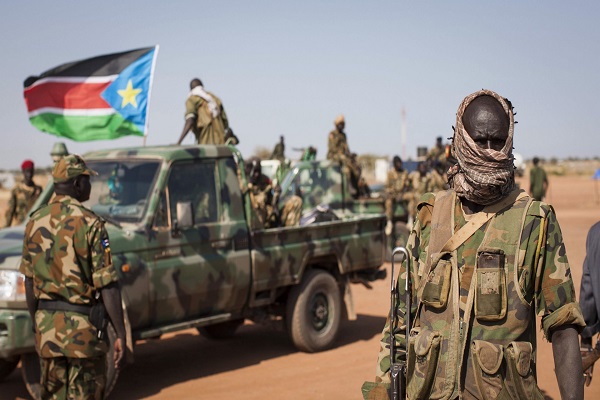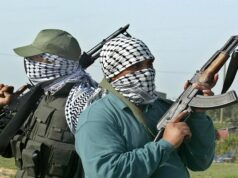New gunfire and shelling were recorded in Sudan on Tuesday, April 25, amidst a 72-hour ceasefire in the crisis-hit North African country.
The ceasefire is the fourth effort to stop the fighting which began on April 15, with previous truces not observed.
U.S. Secretary of State, Antony Blinken, on Monday, said the 72-hour truce had been agreed between the army and the paramilitary Rapid Support Forces (RSF) after 48 hours of negotiations.
The latest ceasefire attempt started at midnight (22:00 GMT on Monday).
At least 459 people have died in the conflict so far, though the actual number is thought to be much higher.
Both sides had confirmed they would cease hostilities.
But Tagreed Abdin, who lives 7km from the centre of Khartoum, the capital of Sudan, said she could hear shelling from her home on Tuesday morning despite the agreement.
“The situation right now is that this morning there was shelling and gunfire.
READ ALSO: Sudan factions agree to 3-day ceasefire
“Obviously the ceasefire hasn’t taken,” she told BBC.
The RSF has accused the army of violating the truce by “continuing to attack Khartoum with planes”.
Meanwhile, an army spokesperson said the RSF was responsible for “storming prisons” following reports of gunfire at Port Sudan.
The World Health Organization (WHO) also warned there is a “high risk of biological hazard” after fighters seized a laboratory believed to be holding samples of diseases including polio and measles.
Since the violence began, residents of Khartoum have been told to stay inside, while food and water supplies have been running low.
The bombing has hit key infrastructure, like water pipes, meaning that some people have been forced to drink from the River Nile.
Hospitals are running out of key supplies and struggling to cope, according to the secretary-general of Sudan Doctors Union, Dr Atia Abdalla Atia.
Countries have scrambled to evacuate diplomats and civilians as fighting raged in central, densely populated parts of the capital.
There will be hopes the latest ceasefire will allow civilians to leave the city. Foreign governments will also hope it will allow for continued evacuations out of the country.
Several EU member states, as well as African and Asian countries, have evacuated hundreds of their citizens, while the UK government has announced it will begin evacuating British passport holders and immediate family members from Tuesday.
- 519 bag first class as FUTA graduates 6,405 students - November 23, 2024
- Stock market closes with N99bn loss - November 23, 2024
- Edo govt declares over 200 vehicles missing, recovers diverted palliatives - November 23, 2024










